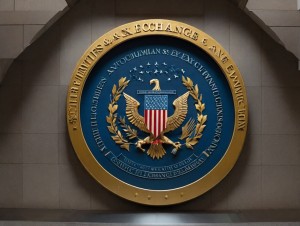One sociologist describes “false news” or “rumors” as “improvised news,” which tends to spread when the demand for information exceeds supply. Such an information deficit most often occurs during wars and other crises, which might explain why some rumors have had such dramatic results.
Just barely a day ago, we were rudely awakened by the noise in social media of “impending doom to those in India engaged in digital transactions using bitcoin or any form of cryptocurrency”.
Where are we now in this unfolding drama of the “India Bitcoin Ban Bill”? As we go to press, the space gets heated up with speculations. At the same time, the Reserve Bank of India and its partners have purportedly also proposed the creation of a “Digital Rupee” to fill in the void left by a ban on Bitcoin.
This exact strategy has purportedly been “recommended by a panel headed by Economic Affairs Secretary Subhash Chandra Garg”, and has been backed by an array of other respected GOI” agencies.
Some have stated that the bill — if put in place — may have some unintended consequences for the Indian government. In fact, this bill may backfire altogether.
What actually happened? The progression of events happened fast from the time informant at Bloomberg gave the scoop: “Pls see the pages posted by Bloomberg editor @Nikunj_Ohri”. This was later picked up by other media outlets as a mere “screenshot of the official bill draft”.
I guess the news may be true…
Pls see the pages posted by bloomberg editor @Nikunj_Ohri
Very very strange and unacceptable regulation!
Indians should stand against it for a great decentralized future!@NischalShetty pic.twitter.com/FTLklPF01k— Global Reformer (@GlobalReformr) June 7, 2019
So now we have a screenshot with this “chilling” window view:
“India is proposing a 10-year jail sentence for those who mine, hold, or transact with cryptocurrencies,” this is the gist of the “Banning of Cryptocurrency and Regulation of Official Digital Currency Bill, 2019”.
Before we all jump into the fray or go about selling our crypto assets at a loss for fear of sequestration or a “jail sentence”, think about this:
- There is no official documentation or announcement. Varun Sethi, a lawyer specializing in blockchain, filed the inquiry into the RBI’s involvement with “Banning of Cryptocurrencies and Regulation of Official Digital Currencies Bill 2019″ draft, following a report from the Economic Times. RBI disavowed knowledge.
- This screenshot or news did not come from official sources yet, and can be photoshopped too.
- The news was published by Bloomberg and all news media copied it without due diligence, all local and international media.
- The news which could even come from a fake screenshot could not be interpreted. They said 1-10 years, not just 10 years and they said it’s for specific conditions.
- Those are the conditions which they ignore, Section 8 could talk about terrorism and money laundering and that these jail terms could be for those activities.
Some questions:
- How is the government going to find crypto holders? Yes, exchanges data shared with the government and such. They want people to disclose within 90 days and dispose as per the bill. So, they expect people to come out with it, and/or use their history in exchanges to make a list. They tried to use it in the past to send notices of top traders and it did not work.
- Now even if someone declares and says it’s disposed, how is the government going to verify that a wallet they sent is really a wallet someone else owns? if someone says they sent it to someone abroad, how will they verify?
- How can anything be validated? or how can anyone be found to be a hodler if they do not do transactions from exchanges to their banks anymore? irrespective of what they did in the past, it’s important to know how government will validate the holdings.
- Does government have the manpower to process screening and restriction for millions of civilians and possibly even bigger number who have touched crypto at one point or another? No, they are likely to touch upon only top numbers or those they want to target. How feasible is the deployment of it?
- GOI cannot force the free will of individuals to selectively do business with their own money or wealth. Its against the Constitution. Yes, if it involves AML, terrorism, sure, but otherwise, nope. So, until proven guilty, isn’t one innocent.
Now, here are possible consequences:
- Earlier everyone was ready to pay taxes of 30% on crypto transactions like stocks. Then RBI stopped banks from using crypto. That created a situation where P2P transactions rose. Now government does not know or cannot know of individual transaction as well, to tax it.
- Now if they do this ban, things will get even worse with AML and tax avoidance. So if this is true, then crypto isn’t going anywhere, just a lot of tax money is going to be fully lost.
- This draft has a long way to get into implementation as law, if at all this news is verified with source in days to come and not a photoshopped one for media-money-printing-goals.
- Situations can go worse for tax-collection part of the government. This will stop India from being a major player in emerging tech which countries like Dubai and many others are gladly seeing the confusion about the “ban” as a growth opportunity.
- FOMO from users due to exaggerated news is causing crypto users to lose money.
Those in my network have variable reactions. Some of my connections sold some of their coins for fear of “being caught with the goods” and landing in jail. Others are benefiting from the speculations by buying from those who sell.
There are also those who highly doubt this bill will get passed by the two houses, but if it does, I believe that it will have the opposite effect and actually drive adoption. “People don’t like being told what to do with their wealth.”
A final advice, don’t believe everything you read—or everything you hear. Unverified but plausible-sounding rumors have been the basis for violent death and destruction throughout history, whether or not the stories had anything to do with the truth.
Those who fear have plenty to hide, but those who don’t have anything to hide benefits from the confusion. On which side are you?




